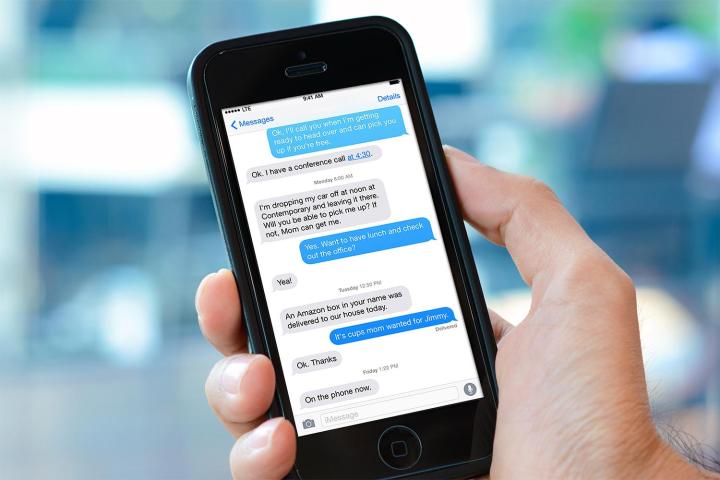
However, Comey’s arguments about encryption don’t align with how iPhone encryption actually works, claims computer-security researcher Nicholas Weaver. In a post on the blog Lawfare on Tuesday, Weaver points out that, even if encryption protects the contents of your iMessages, the FBI can still obtain plenty of information about you from your iPhone — for instance, your location data and your iMessage metadata would both be accessible to law enforcement with a warrant.
Crucially, Weaver also points out that iPhone users who enable iCloud backups would be vulnerable to a FBI search warrant. iCloud backs up the contents of messages to Apple’s servers, making the messages themselves easily accessible — a far cry from the inaccessibility described by Comey before the Senate Judiciary Committee.
“Finally, there is iMessage, whose ‘end-to-end’ nature, despite FBI complaints, contains some significant weaknesses and deserves scare-quotes,” Weaver explains. Even though Apple CEO Tim Cook has claimed that there is no way for the company to read users’ iMessages, Weaver points out that it is possible to compromise the cryptography used to encrypt these messages.
Some encryption systems use a public keyserver, where users can look up and independently verify each other’s keys. However, Apple’s keyserver is private, so users have no way to independently verify each other’s keys. Apple could collaborate with law enforcement to provide a false key, thereby intercepting a specific user’s messages, and the user would be none the wiser. Weaver writes, “There remains a critical flaw: There is no user interface for Alice to discover (and therefore independently confirm) Bob’s keys. Without this feature, there is no way for Alice to detect that an Apple keyserver gave her a different set of keys for Bob. Without such an interface, iMessage is ‘backdoor enabled’ by design: The keyserver itself provides the backdoor.” Weaver says this vulnerability could also be used to tap into FaceTime calls.
“If one desires confidentiality, I think the only role for iMessage is instructing someone how to use Signal [an open-source encrypted messaging app],” Weaver concludes.
Editors' Recommendations
- No, the Journal app on your iPhone isn’t spying on you
- This app put iMessage on my Android phone — and it blew me away
- Nothing’s iMessage for Android app is unbelievably bad
- I love Apple, but it’s totally wrong about iMessage and RCS
- The iPhone’s futuristic satellite tech isn’t coming to Android any time soon


